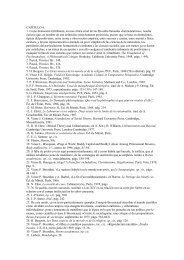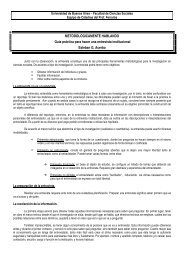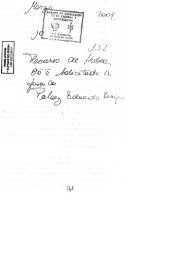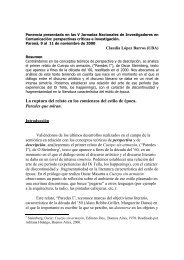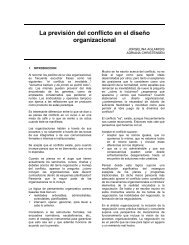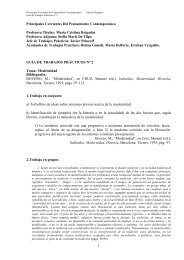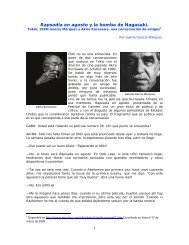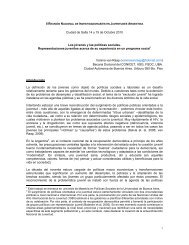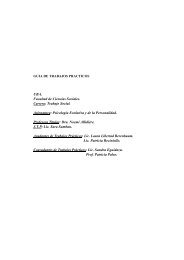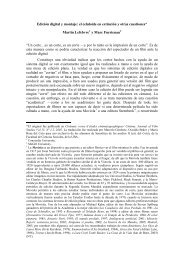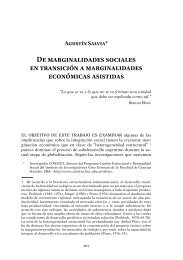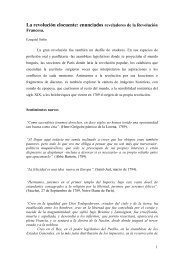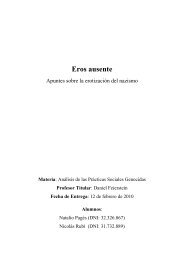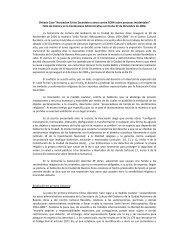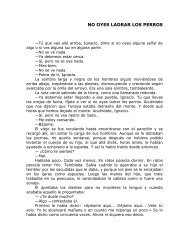Charisma Reconsidered
Charisma Reconsidered
Charisma Reconsidered
Create successful ePaper yourself
Turn your PDF publications into a flip-book with our unique Google optimized e-Paper software.
himself gave typically involved times of crisis, particular (culturally bound)<br />
institutions, such as Kadis, Herzogs and Bhagwans, demagogues, ancient and<br />
modern, whose role was a product of particular forms of democracy, and, finally,<br />
the origins of law in law-prophecy, which he himself understood was a special case<br />
of crisis leadership. But he also identified the charismatic elements of particular<br />
cultural practices, particularly those of primitive varieties, and of official statuses,<br />
as in the case of office charisma, as well as the role of charismatic ideology in<br />
certain educational practices – such as classical Chinese aristocratic education,<br />
which he characterized as a process of awakening the charisma within the<br />
student.<br />
With regard to the second dimension, Weber sometimes thought of<br />
charisma narrowly as a feature of Herrschaft: specifically of the individual possession<br />
of the ability to ‘command’ followers in the absence of a basis for these<br />
powers of command in law or tradition. Sometimes, however, he spoke of it as a<br />
kind of tincture, a special element or quality that diffused through and transformed,<br />
by lending a spiritual aspect to, institutions or practices. The ‘command’<br />
aspect of charisma, in its ‘pure’ form, was closely associated with ‘baffling success’;<br />
the other trans-historical aspect was more closely associated with magic and taboo,<br />
and in more modern contexts with ‘the sacred’.<br />
A methodological issue is entwined with the problem of the relationship<br />
between these dimensions of the concept of charisma. Weber repeatedly remarks<br />
on the differences between the pure concept of charisma and its important actual<br />
examples, in which it is emphasized that the formal concept is merely a way of<br />
understanding the compound or hybrid character of the actual cases. These<br />
remarks shed some interesting light on the empirical character of charisma: the<br />
purest form of charisma is so unstable that it is likely to be negligible in its<br />
historical effects; it is only in its compound forms – combined with the rational<br />
strategy of Napoleon, for example – that it lasts long enough to produce<br />
historically noticeable consequences. But at the same time this reasoning served to<br />
bind the concept of charisma very closely to the methodological strategy of idealtypes,<br />
for it made it clear that one could only use charisma as a way of<br />
understanding something that naturally occurs solely in combination, as a tincture,<br />
or as a hybrid. But this in turn produces another problem: charisma seems to<br />
figure primarily as a concept with little positive content, as a residual category that<br />
provides an explanation where other explanations do not suffice.<br />
Weber’s own writings are unhelpful in providing the concept with positive<br />
content in part because of the structural role it plays in his formal scheme, which<br />
itself tends to make charisma into a highly heterogenous residual category. If we<br />
think of traditional and rational-legal authority as essentially regimes of rules, in<br />
which the rules in question in the rational-legal case are written and interpreted<br />
in the last instance by trained professionals, such as bureaucrats and lawyers,<br />
and in the case of traditional authority are unwritten and ultimately interpreted by<br />
the memories of elders, we can see the category of charismatic authority as one in<br />
TURNER CHARISMA RECONSIDERED 9



